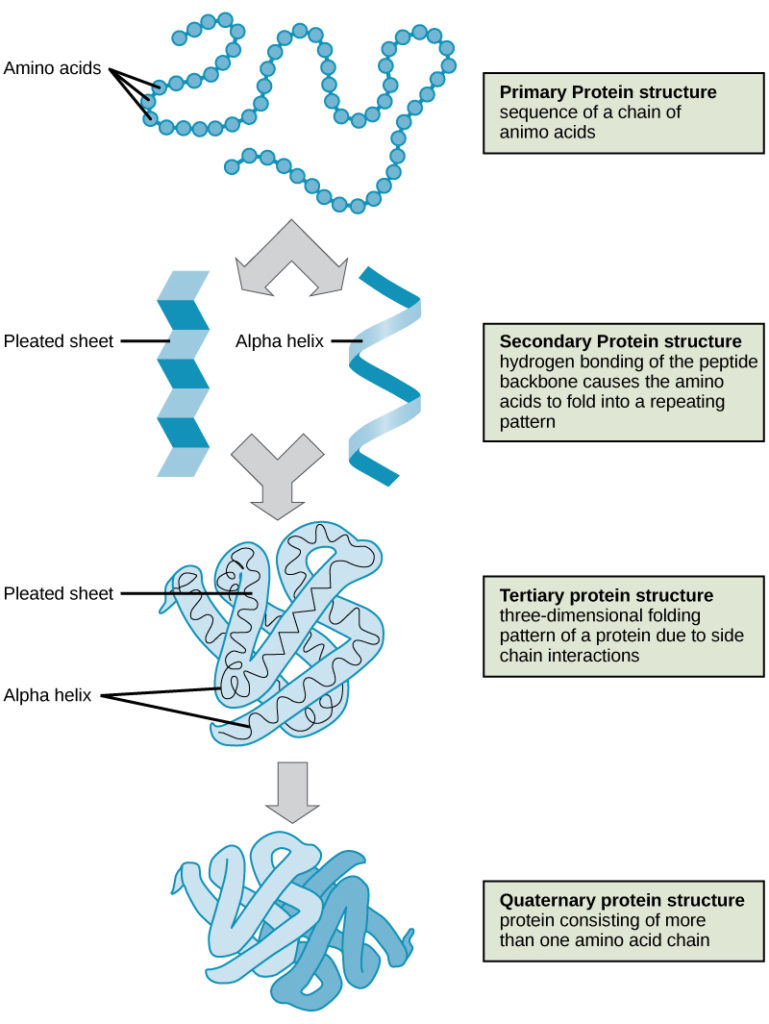List the Functions of Proteins in the Text Area Below.
Proteins do most of their work in the cell and perform various jobs. They help in metabolism by providing structural support and by acting as enzymes carriers or hormones.
Composed of amino acids and connected by peptide bonds.

. Enzymes and coenzymes play a major role in catalyzing all biochemical and metabolic reactions and all enzymes and some coenzymes are essentially made up of proteins. Listed below are the most common ones. Every process carried out in the body involves at some point or entirely a chemical reaction.
5 Creative Ways To Teach The Cell Teaching Biology Activities Teaching Biology Life Science High School Some proteins are globular in shape whereas others are fibrous in nature. The main functions of the proteins are listed below. -They transport oxygen in the blood of vertebrates.
Actin and myosin function in contractile system of skeletal muscles. -They play a key role in moving materials within the cell. Antibodies involved in the immune response are proteins.
Enzymes are proteins that carry out several reactions in the body. Recognize and combine with other materials Immunoglobins-antibodies of the immune system cell membrane proteins Transport Bind to specific materials and carry them around the body hemoglobin-carries oxygen in blood membrane proteins. Chemical reactions proceed according to a physical law known as Gibbs Free Energy.
Of the following list choose the functions of proteins in living cells. They do most of the work in cells and are required for the structure function and regulation of the bodys tissues and organs. Allows molecules to pass through the bilayer by either creating a channel or changes its shape while hydrolyzing ATP.
Structural Proteins Give cells shape size strength bind cells together to make tissues and create the cytoskeleton. Growth and Maintenance Your body needs protein for growth and. The immunoglobins and antibodies are different types of proteins secreted by cells to protect against foreign particles.
Acts as messenger View the full answer. Click again to see term. List the Functions of Proteins in The Text Area Below.
Click card to see definition. Contribute to structural support. Showing posts from April 2022 Show all Which of the Following Is an Example of Indirect Characterization.
There are countless functions that proteins fulfill. These events are directed modulated or detected by complex biological machines which are themselves large molecules or clusters of molecules. All biological functions depend on events that occur at the molecular level.
There are various types of proteins with a number of different functions they perform. The defense system of the human body is dependent on proteins. Proteins are a class of macromolecules that perform a diverse range of functions for the cell.
Fibrinogen and thrombin are blood clotting proteins that prevents loss of blood on injury. Catalysts enzymes in metabolic reactions. Some proteins function as enzymes ie proteins that catalyze specific biochemical reactions.
Function depends on protein shape. Proteins help transport nutrients and other substances Proteins play an important role in immunity. This law dictates that energy must be put into a system in.
These functions can include. Perform a multitude of other tasks. The functions of protein are transportation acting as enzymes and hormones and making polypeptides.
The building blocks of proteins monomers are amino acids. Protein Used to build and repair tissues. Tap again to see term.
Proteins are stored in adipose tissue to be used as an energy source. Tap card to see definition. -They catalyze chemical reactions.
Proteins are large complex molecules that play many critical roles in the body. Constructing different structures like the cytoskeleton. Growth and Maintenance.
-They help the body recognize and destroy foreign microbes and cancer cells. Chemical messengers and receptors for intercellular communication. Proteins are stored in adipose tissue to be used as an energy source later.
Helping in the digestion of food by catabolizing nutrients into monomeric units. Proteins help maintain fluid balance. The building blocks of.
Serve as tracks along which cell parts can move. Form ion and transport channels in the cell membrane. Included are proteins nucleic acids carbohydrates lipids and complexes of them.
Click card to see definition. Here are 9 important functions of protein in your body. Enzymes facilitate biochemical reactions and speed them up enormously making them as much as a million times faster.
Contractile or motor proteins. Carrying substances in the blood or lymph throughout the body. Proteins help speed up chemical reactions.
Role in blood clotting. There are thousands of enzymes and each type facilitates a specific biochemical reaction. Many areas of biological science focus on the signals detected by.
Proteins are made up of hundreds or thousands of smaller units called amino acids which are attached to one another in long chains. Tap card to see definition. 9 different functions of protein are.
Body requires protein for growth and repair of tissues. Causes biochemical reactions. Proteins like fibrinogen thrombin etc are involved in one of the most crucial homeostatic regulatory mechanisms.

Create A Concept Map Of Biomolecules Concept Map Biology Activity Graphic Organizers

Cell Vocabulary Fill In The Blank Extension Worksheet Freebie Vocabulary Biology Classroom Cell

No comments for "List the Functions of Proteins in the Text Area Below."
Post a Comment